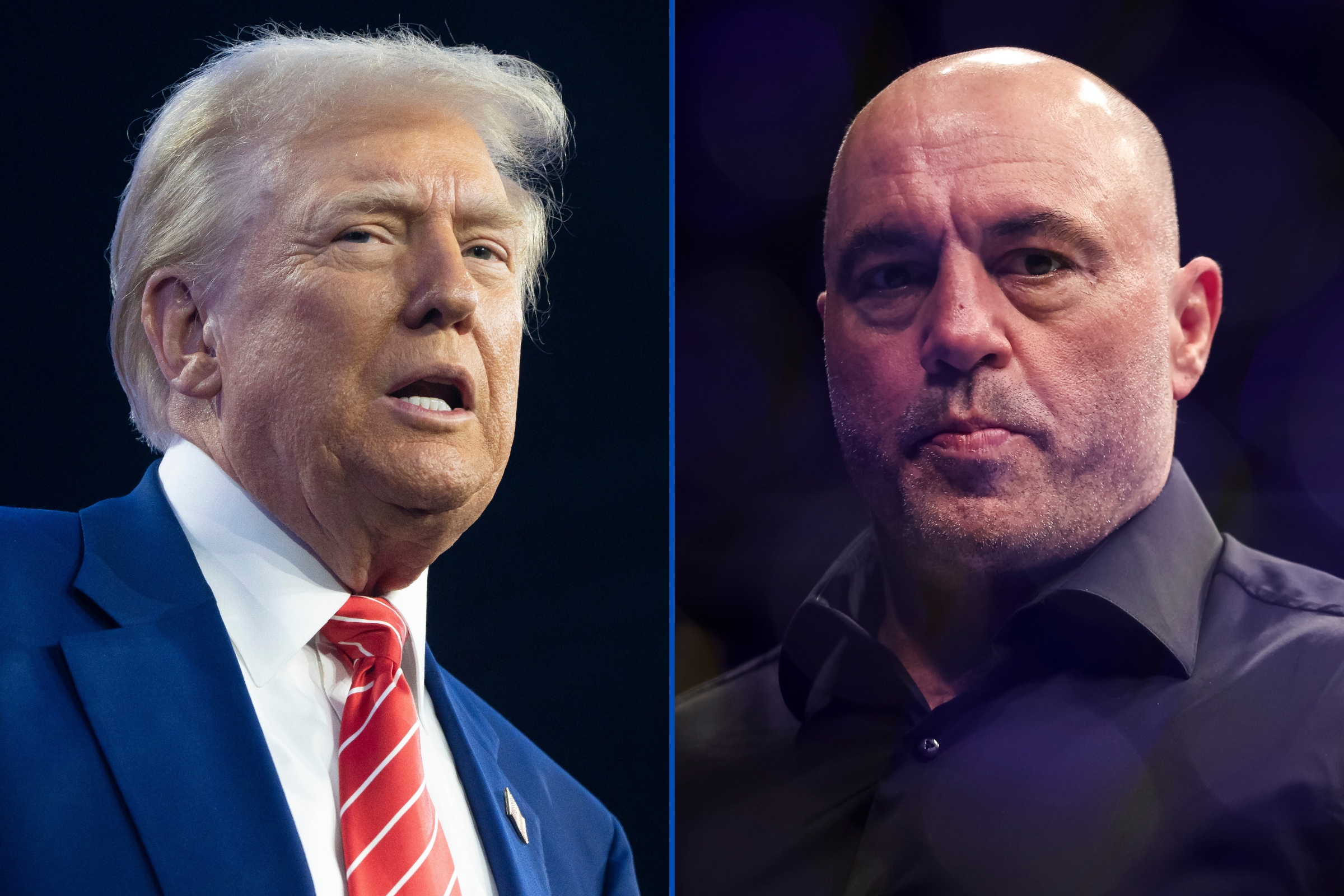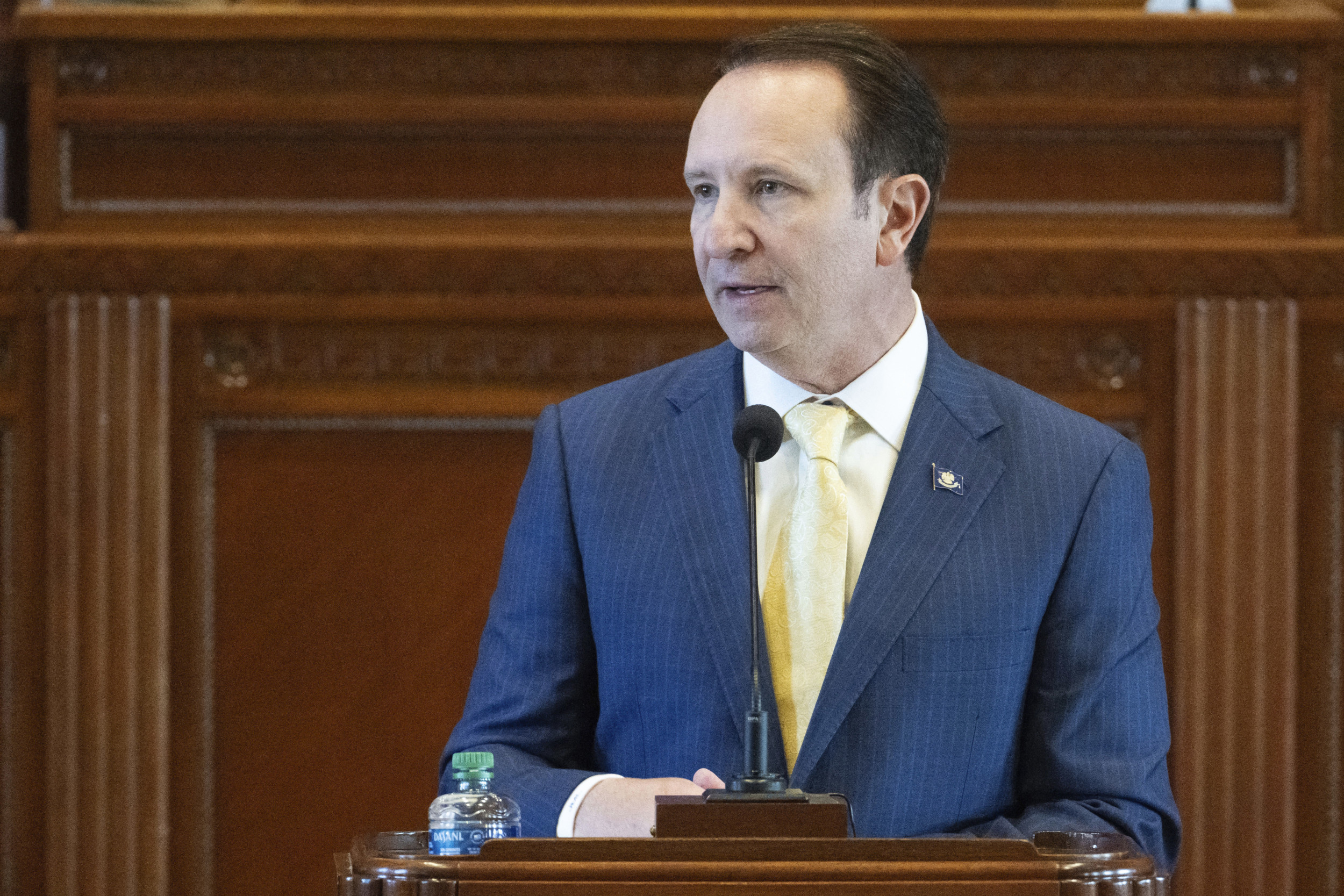The head of an Iraqi militia involved in a campaign against U.S. troops and Israel has expressed to Newsweek his desire for a less hostile relationship with the United States when President-elect Donald Trump assumes office.
The remarks come as regional stakeholders anxiously await Trump's strategy upon returning to office to oversee a volatile landscape in the Middle East, where Israel and the Iran-aligned Axis of Resistance have been locked in battle for more than a year. Trump has signaled strong support for Israel and a tougher line against Iran, but he has also vowed to put an end to wars abroad, having accused President Joe Biden of pursuing interventionist policies in the region.
Now, as fighters of the Islamic Resistance in Iraq call into question the current administration's commitment to a deal announced in September to begin withdrawing U.S. forces from the country, one group sees potential in Trump's outlook.
"We are waiting for him to confirm the matter and begin withdrawing forces or scheduling their withdrawal so that he can prove to us as Iraqis the truth of his words, which is what we hope for from President-elect Trump," Sheikh Mohammed al-Tamimi, secretary-general of the Faylaq al-Waad al-Sadiq ("True Promise Corps") faction of the Islamic Resistance in Iraq, told Newsweek.
Tamimi said his group and others are awaiting Trump's policy, "knowing that his thinking is different from the Biden administration and that he does not think about wars as much as he thinks about the economy and his support for both America and the region here in the Middle East."
The Faylaq al-Waad al-Sadiq leader also warned the president-elect. If he fails to withdraw U.S. troops, Tamimi said, "the resistance will not leave the matter without forcing the United States to withdraw its forces, whether through political diplomacy or resistance, which is a legitimate right of peoples to defend their lands and freedom."
Newsweek reached out to the Trump campaign for comment.

Iraq has emerged as one of many battlefields in the crisis that has consumed the region since an unprecedented Hamas-led attack on Israel last October. Less than two weeks later, the Islamic Resistance in Iraq began firing rockets and drones at Israel and U.S. troops present in Iraq and Syria, occasionally resulting in U.S. strikes against their positions.
The militia campaign against U.S. troops slowed significantly in February after one particularly intensive set of U.S. strikes following the death of three U.S. soldiers in a drone attack. But new incidents have emerged in recent months, and Iraqi factions continue to threaten not only to resume but expand their offensive should the U.S. not make good on its plan to withdraw troops.
The Biden administration has not specified precisely how many personnel would leave or remain in the country throughout the process. U.S. officials have said that the first phase of what's being referred to as a "transition" would end in September 2025, allowing for continued U.S. operations from Iraq against the Islamic State militant group (ISIS) presence in Syria until at least September 2026, when the second phase was set to end.
Trump had overseen a significant reduction in the U.S. military presence in Iraq amid another period of heightened regional tensions during his first administration. The drawdown followed an escalating cycle of clashes between U.S. troops and Iraqi militias throughout 2019 and the U.S. killing of Iran's Islamic Revolutionary Guard Corps Quds Force chief Major General Qassem Soleimani alongside Iraq's Popular Mobilization Force deputy commander Abu Mahdi al-Muhandis in Baghdad in January 2020.
The Popular Mobilization Forces is an umbrella organization of paramilitary units that was established to support the fight against ISIS. While the coalition was ultimately incorporated into the Iraqi Armed Forces, a number of its members, including Kataib Hezbollah and the Nujaba Movement, operate independently and now form the core of the Islamic Resistance in Iraq.
The situation has put Baghdad in a bind as it seeks to balance internal demands for a U.S. withdrawal, hopes for expanding ties with Washington and concerns over being further caught up in the regional conflict.
Following Trump's election victory over Vice President Kamala Harris last week, Iraqi Prime Minister Mohammed Shia al-Sudani spoke with the U.S. president-elect and later issued a statement referencing the Trump campaign's "statements and promises to work towards ending wars in the region."
An Iraqi government spokesperson told Newsweek that Sudani also plans to send an official letter of congratulations once Trump takes office and that the Iraqi premier believes Trump will live up to his commitments.
"The relationship between Iraq and the United States of America transcends administrations and governments and are institutionalized," the Iraqi government spokesperson said.
"And yes, the Prime Minister has faith in the president elect's promise to end wars the region and hopes to work together towards affair, just legitimate and legal and to all acts of aggression and to uphold the rules of war and international material law and respect human rights," the spokesperson added.
In fact, the spokesperson said, "There is no concern whatsoever from the Iraqi government side or lack of faith in the plan and the joint Iraq-American announcement to end the military mission of the global coalition to fight ISIS from Iraq."
"The plan is already being implemented in good faith by both sides," the spokesperson continued, "and, is based on proper military estimate in the spirit of partnership between the two countries."

Tamimi, however, was less convinced by the prospects of the deal under the Biden administration.
"The Biden administration, in its announcement and intention to withdraw U.S. combat forces from Iraq, was not honest, and we have a lot of evidence of that, including its replacement of forces with other combat forces," Tamimi said. "It did not seek to reduce the number of its soldiers, but rather tried to increase the number of its bases in Kuwait and the region, which makes us doubt the Biden administration's decision at the time."
As the new administration takes shape, Tamimi was also not disheartened by the swell of support for Israel from the Trump campaign and those being appointed to high-level positions.
"We know very well how the process is managed there and what are the requirements for becoming president of the White House," Tamimi said, "but this does not mean that we trust everything that comes out of the White House because American and Israeli interests take precedence over the interests of the rest of the peoples."
Tamimi referred to Israeli Prime Minister Benjamin Netanyahu as "a man who represents evil" and whose actions threaten to drag the U.S. into a large-scale conflict in the Middle East and possibly even a "global war." Here, he argued that the Trump administration had the potential to use its "wisdom" to pursue more constructive policies where the current White House has failed.
"This is something we expect from the new administration," Tamimi said. "The price of war is great, and even if America is far from it, it has interests in the region that it wants to preserve, which is something that Biden does not think about. It is in America's interest for peace to prevail, but a peace that preserves the freedom and right of the peoples of the region to determine their fate."
Trump himself frequently accused Biden and Harris of steering the country toward "World War III" in the leadup to the election, arguing it was the Democrats who sought to intervene further in the Middle East. He vowed to "stop wars" rather than start them in his victory speech.
As for the escalation in rhetoric against Iran, Tamimi also said this was nothing new, "but rather it has been rooted for forty-five years, which is something that it is difficult to find keys to a solution for during Trump's term or anytime soon."
Still, he said, "the most important issue remains," and that is that "we do not want war in the region and do not want to drag the region into more wars, but rather we seek peace, but peace that is conditional on the rights of the Palestinian people and the freedom of the rest of the peoples of the region, far from the policy of hegemony or exploitation.
To this end, he said, "We await the decisions issued by the White House, after which there will be a response from the resistance forces that believe in one thing, which is freedom and nothing else."
Meanwhile, the Biden administration has expressed determination in responding to the threat posed by Iraqi militias in the U.S. Central Command area of operations (AOR), which includes both Iraq and Syria, among other regional countries.
CENTCOM announced Tuesday that U.S. forces conducted strikes against an "Iranian-backed militia group's weapons storage and logistics headquarters facility" in response to a rocket attack conducted against U.S. personnel at Patrol Base Shaddadi, located in northeastern Syria.
"These strikes will degrade the Iranian backed groups' ability to plan and launch future attacks on U.S. and Coalition forces who are in the region to conduct D-ISIS operations," the CENTCOM statement said, referring to the "Defeat-ISIS" mission.
Reached for comment in the wake of the latest messaging from the Islamic Resistance in Iraq, which also operates in Syria, a CENTCOM spokesperson told Newsweek that the U.S. military was aware of the threats posed by such militias and would continue to operate against them in a defensive posture.
"U.S. and coalition partners recognize the threats posed by the many Iranian-backed militia groups operating throughout the AOR," the CENTCOM spokesperson said. "We retain the inherent right to self-defense wherever and whenever attacked."
"The protection of our service members is paramount," the spokesperson added, "and we will not hesitate to take appropriate action to defend them or to respond at a time and place of our choosing."

The Islamic Resistance in Iraq has not publicly claimed any strikes on U.S. forces during this time. However, it has continued to announce daily attacks against Israel "in continuation of our approach to resisting the occupation, in support of our people in Palestine and Lebanon, and in response to the massacres committed by the usurping entity against civilians, including children, women and the elderly."
At least five consecutive operations targeting the "northern occupied territories," referring to Israel and the Israel-occupied Golan Heights, were announced throughout late Wednesday and early Thursday. Two others were announced the previous day, along with launches targeting central Israel and the southern port city of Eilat.
The Israel Defense Forces (IDF) announced at least three intercepts during this period as Israeli defense systems simultaneously contend with launches from the Lebanese Hezbollah, the Yemeni Ansar Allah, also known as the Houthi movement, and the Palestinian Hamas.
While the IDF has openly conducted operations in all three countries, as well as in Syria, Israeli leadership has not publicly acknowledged any operations in Iraq—nor have Israeli officials precluded future activity there.
IDF spokesperson Lieutenant Colonel Nadav Shoshani told Newsweek during a press briefing Thursday that Israel was currently engaged in a "war on seven fronts," including Iraq, as well as Gaza, Lebanon, Syria, the West Bank, Yemen and Iran itself. He said the IDF has and would take action in response to such threats from foes in all arenas.
As the leader of one of the groups involved in this multi-front war, Tamimi asserted that the Axis of Resistance was proving to be a formidable challenge for Israel, which he argued would ultimately stand to lose.
"The resistance today in Iraq, Lebanon, Syria, Yemen and Palestine is stronger than what is expected," Tamimi said. "The demise of the Zionist entity has become close and the failure of the military capabilities of the Zionist entity is very clear and the military capabilities of the resistance have become strong and are clear in the war now."
He called on Trump to take heed of this.
"The best option for the Trump administration is to stop the war and spread peace for the sake of American economic interests and withdraw forces from Iraq so that peace prevails everywhere," Tamami said.
"He must know that the capabilities and drones of the resistance reach all American bases in the Middle East and reach the oil sources," he added, "and he must also understand this message."



















:quality(85):upscale()/2024/04/24/878/n/3019466/36c5693c662965c5d1ce91.72473705_.jpg)
 English (US) ·
English (US) ·